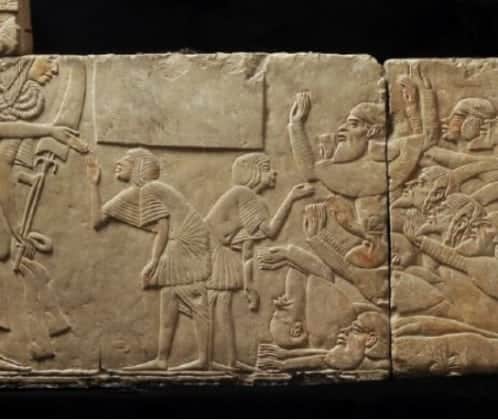The practice of interpreting originated much earlier than the invention of writing, and even though interpreters are portrayed in the walls of the pharaohs’ tombs, there’s more than a million years of human history before the Egyptians that wasn’t recorded.
Uncountable human cultures that never wrote down their stories and customs, that interacted with one another with either violence or peace.
The importance of interpreters became clear to these ancient tribes when cooperation between each other turned out to be a more stable way of life than to constantly wage war.
The uniformity of the modern human race despite our differences in language speaks volumes of the significance of these primitive interpreters.
Without them, the world would be a much smaller place.
[Pictured: The earliest known depiction of an interpreter, translating between a pharaoh to the right
and consorts on the left, found in the tomb of Horemheb, dated to 1350 BCE.]





